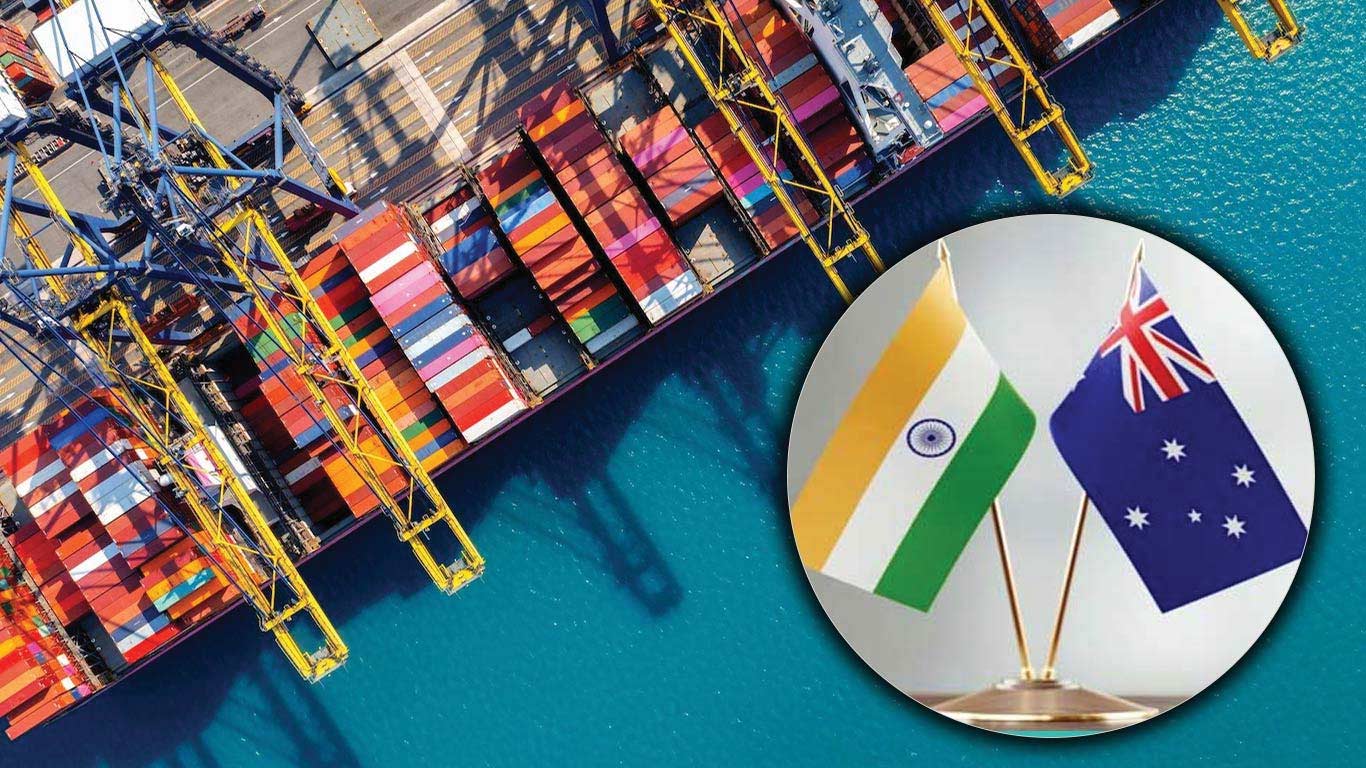By Aiia President Richard
Copyright knnindia

New Delhi, Sep 15 (KNN) CUTS International, in collaboration with the Australian Institute of International Affairs (AIIA), Victoria, convened a high-level hybrid discussion titled ‘Are We Setting Sail Without Checking the Weather? Implications for the Australia-India FTA under Trump 2.0’.
The event explored the strategic and economic implications of the Australia-India Free Trade Agreement (FTA) amid a shifting global trade environment.
The session was moderated by Dr. Michael Moignard, AIIA and opened by AIIA President Richard Iron, who highlighted the importance of strengthening bilateral ties and fostering research-driven policy dialogue between India and Australia.
Prof. Amitabh Mattoo, Dean, School of International Studies at Jawaharlal Nehru University, described the FTA as a ‘hedge and anchor of resilience’ in response to unpredictable India-US trade relations under the renewed Trump administration, especially in defence technology transfers.
Pradeep S. Mehta, Secretary General, CUTS International, noted that a potential US pivot from multilateral frameworks such as IPEF underscores the need for India and Australia to diversify trade, harmonise regulations in agriculture, clean technology, and digital trade, and pre-empt protectionist measures.
He stressed the importance of a well-crafted strategy that combines domestic reforms with informed industry consultations to pre-empt future protectionism and enhance the prospects of a Comprehensive Economic Cooperation Agreement (CECA).
The dialogue coincided with a recently signed MoU between CUTS and AIIA on 1 September 2025, aimed at enhancing collaborative research, policy analysis, and public discourse on trade, security, and strategic cooperation.
Reshad Ahsan, Associate Professor of Economics, University of Melbourne, described the renewed momentum in India-Australia relations as ‘an attempt to de-risk’, particularly in the uncertain and protectionist climate triggered by Trump’s policies. He added, “An Australia–India FTA like ECTA offers much-needed trade certainty in these unpredictable times.”
Arpita Mukherjee, Professor, Indian Council for Research on International Economic Relations (ICRIER), offered critical insights into the evolving trajectory of the Australia-India trade negotiations.
She noted that the recent 11th round of discussions represents a decisive shift toward a more comprehensive agreement, extending beyond traditional tariff reductions to cover strategic areas such as securing critical mineral supply chains and promoting digital trade.
The discussions also highlighted that the CECA negotiations present a crucial opportunity to incorporate provisions on digital trade, AI governance, cross-border data flows, and women’s economic empowerment—areas that remain largely under-addressed in current trade frameworks.
Ambika Vishwanath, Co-Founder and Director, Kubernein Initiative, emphasised that integrating gender perspectives could enhance mutual economic development by 20–55 percent, offering a clear pathway toward truly inclusive growth.
The event also explored how the US stepping back from multilateral Indo-Pacific frameworks creates an opportunity for middle powers such as India and Australia to lead in establishing transparent and sustainable regional economic norms.
This strategy aligns with the broader Quad objectives of promoting democratic values and counterbalancing China’s assertive economic diplomacy.



